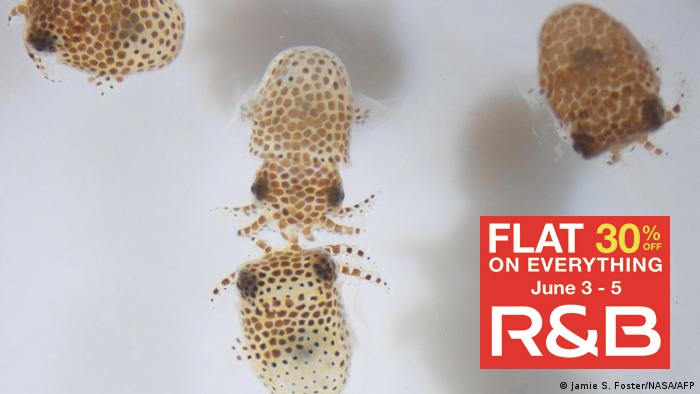
New York: For the first time ever, bobtail squids made it into space on Thursday. They were travelling toward the International Space Station (ISS) aboard a NASA resupply mission.
The space agency sent two boxes with the freshly hatched squids, also known as Euprymna scolopes, to help astronauts study the effects of low gravity on the relationship between the animals and their symbiotic bacteria.
"Animals, including humans, rely on our microbes to maintain a healthy digestive and immune system," said lead investigator Jamie Foster from the University of Florida.
"We do not fully understand how spaceflight alters these beneficial interactions."
Why are astronauts carrying out the studies?
In addition to the squids, the Dragon capsule was carrying tardigrades, also known as "water bears" — amazingly resilient microorganisms capable of surviving extreme cold, heat, radiation and pressure.
"Spaceflight can be a really challenging environment for organisms, including humans, who have evolved to the conditions on Earth," said scientist Thomas Boothby.
"One of the things we are really keen to do is understand how tardigrades are surviving and reproducing in these environments and whether we can learn anything about the tricks that they are using and adapt them to safeguard astronauts."